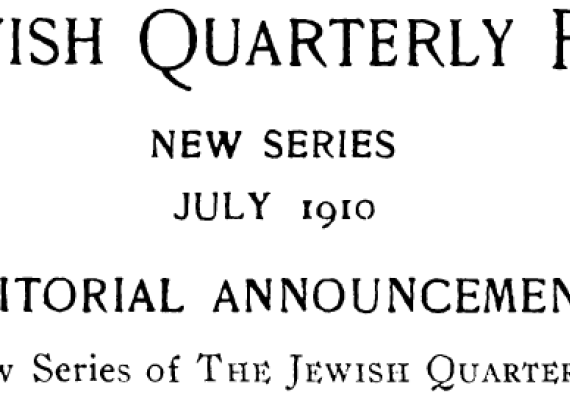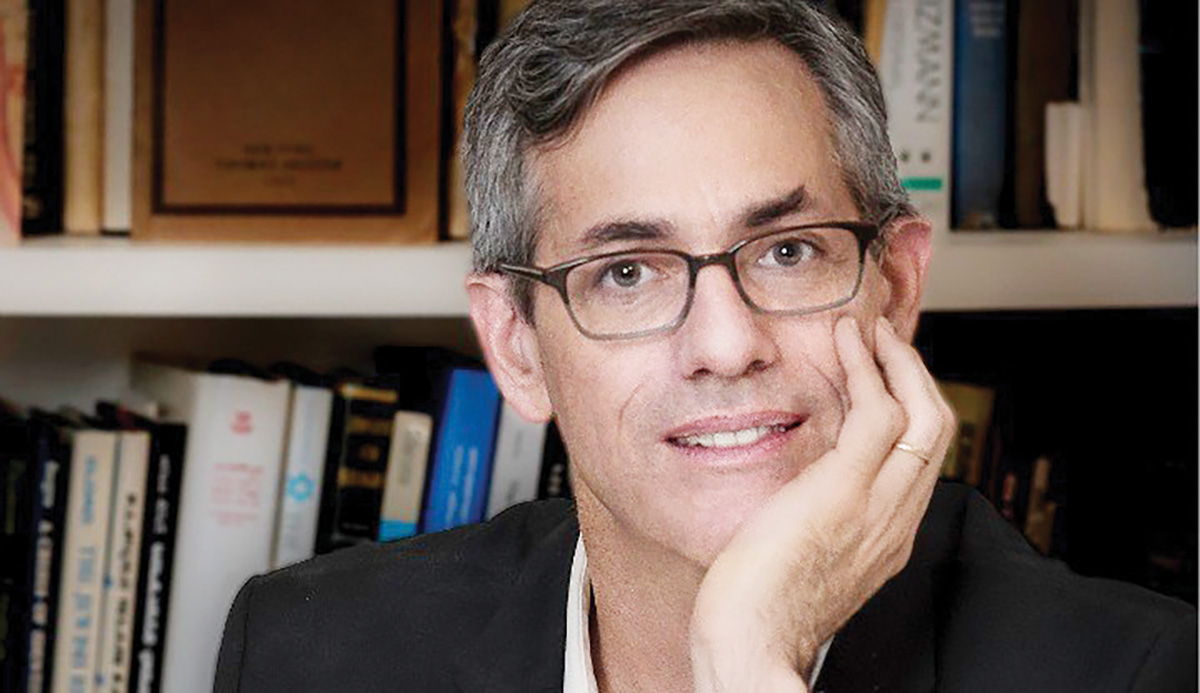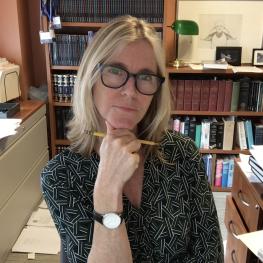Editorial Announcement, 1910 & 2017

When they launched the Jewish Quarterly Review in the United States in 1910, Cyrus Adler and Solomon Schechter, its formidable new editors, felt they were not merely transporting a British journal across the ocean, but were remaking it—taking the opportunity to translate the journal’s mission for a new land. They rejected localism and theology both, and embraced the Jewish historical tradition and bold scholarship as essential to the horizon of human experience and universal knowledge. They wrote a brief editorial introduction to the first number in the new series. In this excerpt from it, we find a set of ideas, “America,” “science,” “learning,” which seem in hindsight to have been admirably transparent to their readers. Each of these words—and Judaism’s imbrication with them—is contested now in ways not imaginable to these authors.
The Editors felt it… their duty to supply the need [for broad meaningful scholarship], as America is fast becoming the center of Jewry, and in all likelihood will become also the center of Jewish learning in the English world. It would be anomalous if, in the face of this great present growth, the past with its glories and its sacrifices, its ideals and achievements, its lessons and its inspirations, were not offered the opportunity of that articulate utterance which can be given to it only through the mouth of science and scholarship.
Cyrus Adler and S. Schechter, “Editorial Announcement,” JQR 1.1 new series (1910), pp. 3–4.

The current editors share this aim, and the dual investment in the American context and the drive for relevance in historical research animates editor David N. Myers most of all. We are delighted that David has been appointed the new President and Chief Executive Officer of the Center for Jewish History in New York. No historian is better suited to the task, with his eye toward the future and commitment to the moral imperatives of scholarship—especially in America, and especially now in the 21st century.
